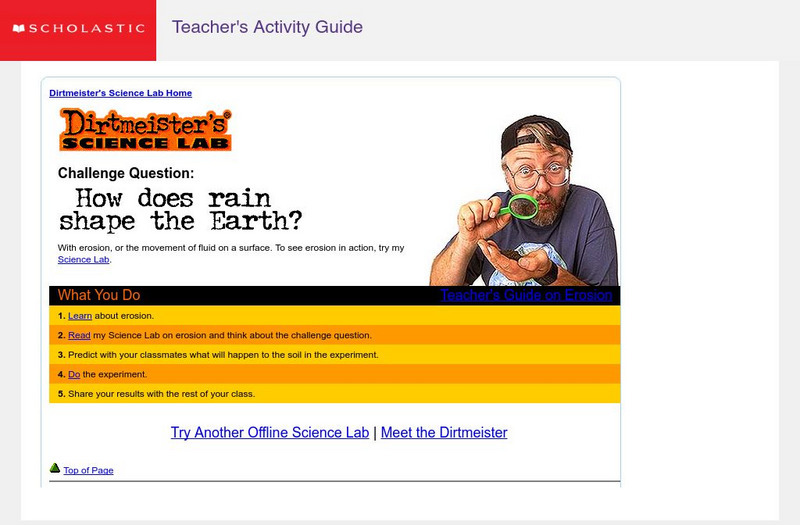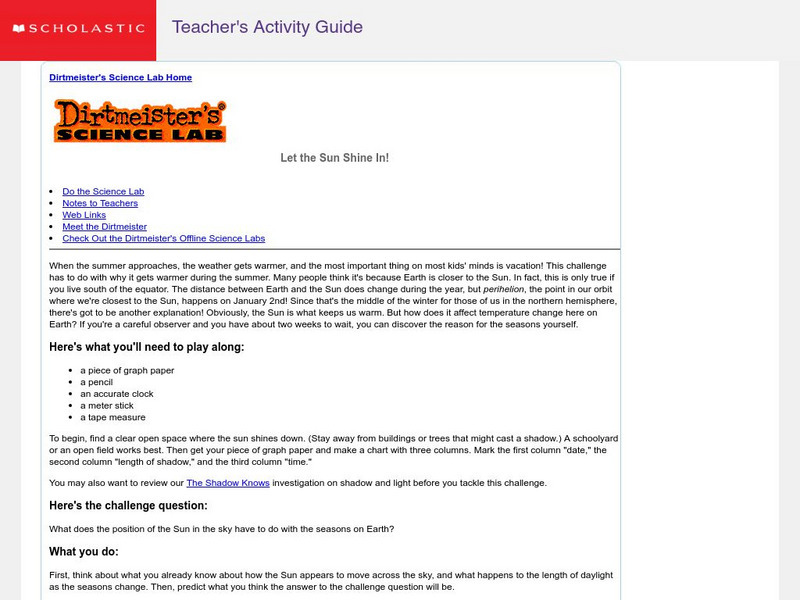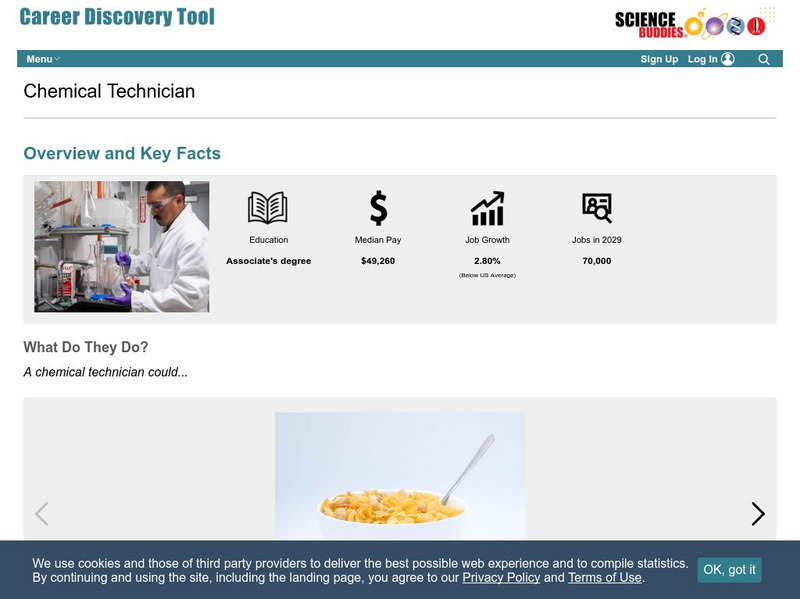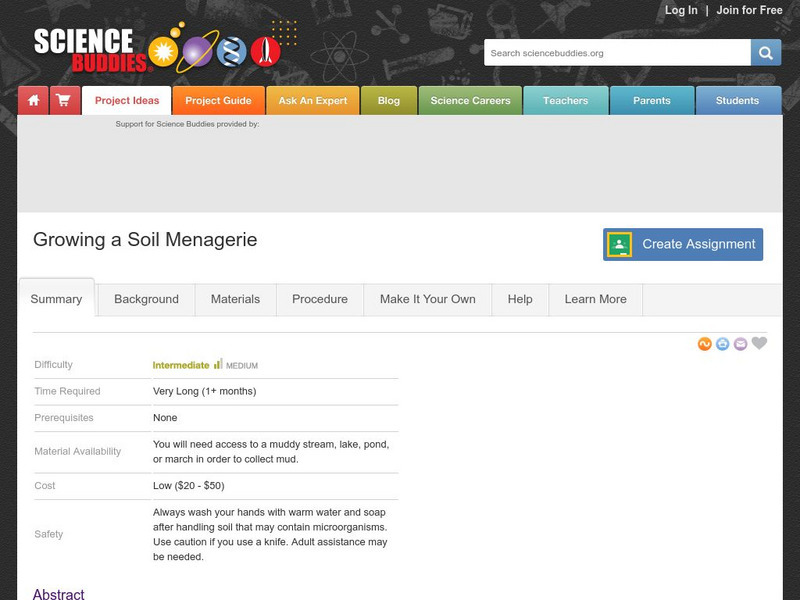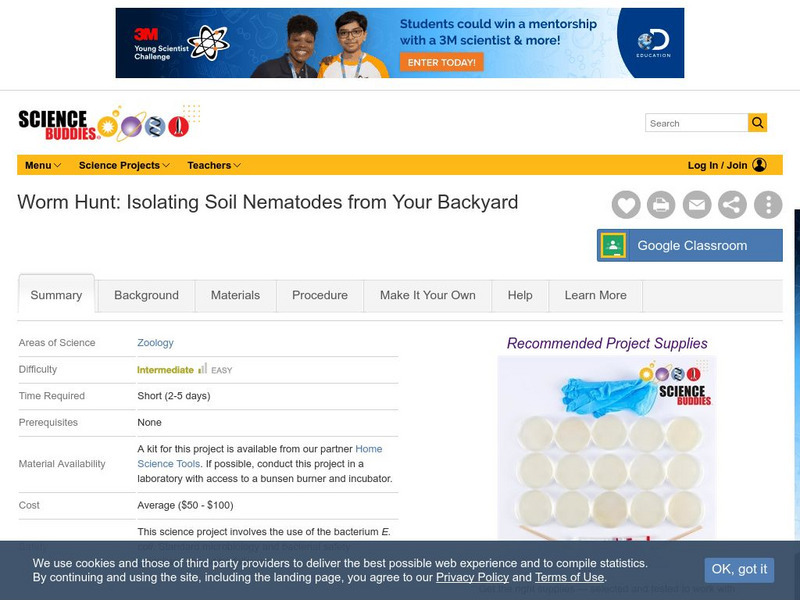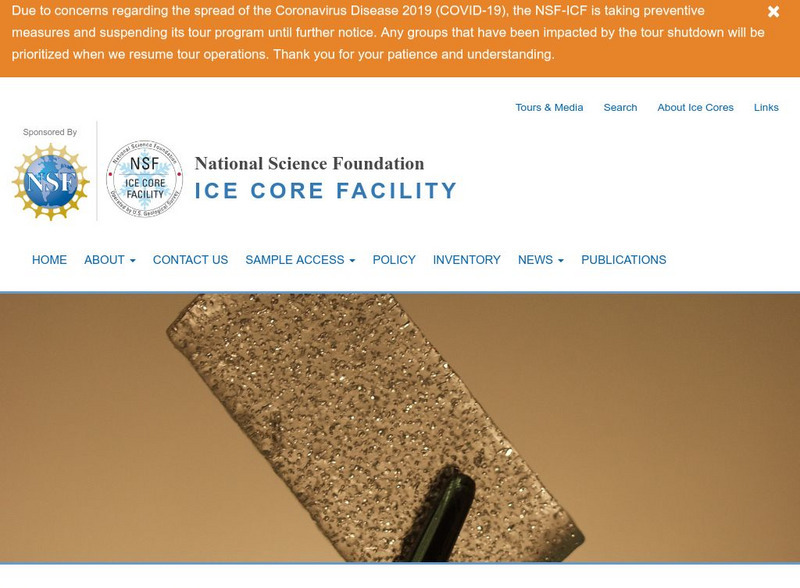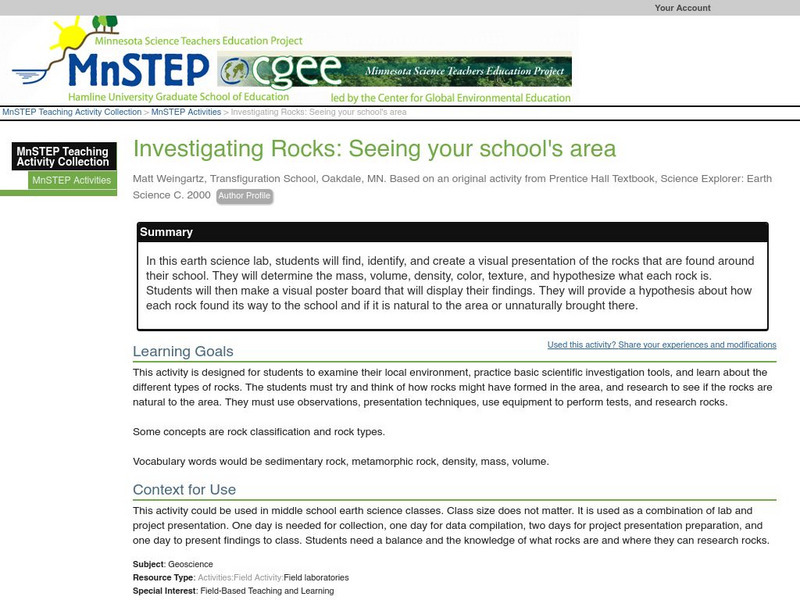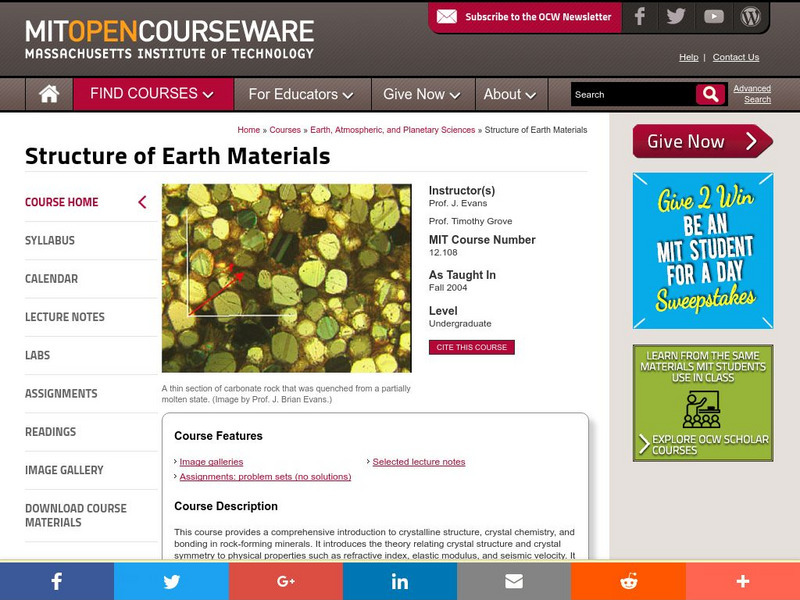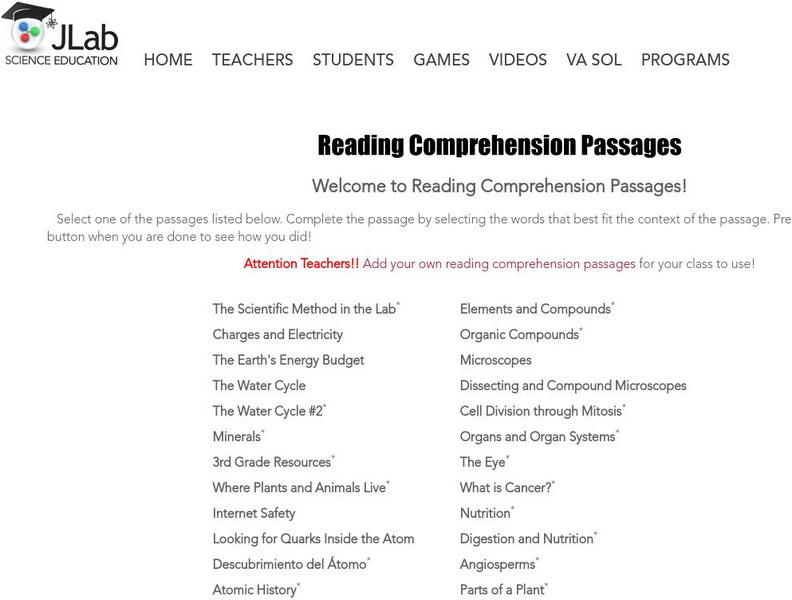Hi, what do you want to do?
Curated OER
Triton Toys
Students investigate the hydrological cycle. The lesson is made to be performed within the computer lab. The lesson can also be done as a center for students to work on the project as time allows.
Curated OER
Calculating the Moon's Width
Sixth graders measure the width of the Moon. In this Moon measurement lesson, 6th graders observe the Moon and complete a formula to calculate the width of the Moon.
Curated OER
Rubber Gardens
Students recycle discarded automobile tires and create gardening sites for limited space areas.
Curated OER
Bioremediation
Learners design and conduct investigations that illustrate the effect bioremediation has on organic matter and determine environmental applications. They, in groups, present their findings to the class.
Curated OER
How to Choose Articles
In this language arts worksheet, students read detailed information that helps students choose correct articles in their writing. Students learn about nouns that refer to one unique thing, countable nouns, uncountable nouns, proper nouns...
Scholastic
Scholastic: Dirtmeister's Science Lab: Erosion
Step into Dirtmeister's Science Lab and discover how rain shapes the Earth. Learn about erosion then do the experiment.
Science Education Resource Center at Carleton College
Serc: Lab 1: Think Globally: Act Locally
A lab experiment in a series of experiments that explores Earth Science Systems. This lab introduces students to the parts of the Earth system: the atmosphere, hydrosphere, biosphere, and pedosphere. As the students learn about the...
Science Education Resource Center at Carleton College
Serc: Lab 2: Drawing Local Connections
A lab experiment in a series of experiments that explores Earth Science Systems. In this lab, students study the four components of the Earth system by diagraming the flow of energy and matter through it.
Science Education Resource Center at Carleton College
Serc: Lab 4: A Bird's Eye View: Exploring Your Region
An investigation that is part of a series of lab lessons that expose students to Earth Systems through research, data, and visualizations. In this lab, students will investigate their region by using Google Earth and predicting what...
Scholastic
Scholastic: Dirtmeister's Science Lab: Let the Sun Shine In
Students graph data reflecting time of day and length of shadow, and then draw conclusions about Earth's seasons and position in relation to the Sun.
Other
Siemens Science Day: Earth Science: By All Indications
A hands-on science experiment where students test acidity levels by using red cabbage extract and learn the acid levels of known and unknown liquids.
Georgia Department of Education
Ga Virtual Learning: Ap Environmental Science: Science, Matter, Energy, Systems
Through interactive activities, reading exercises, and lab activities, students study how science, matter, energy, and systems are interrelated.
Science Buddies
Science Buddies: Career Profile: Chemical Technician
A career as a chemical technician requires an associate's degree as a minimum. If you like testing products, working in a lab, and are detail-oriented, you may be interested in this career strand. This Science Buddies site lays out the...
Georgia Department of Education
Ga Virtual Learning: Ap Environmental Science: Introduction
An introductory module with interactive activities, class notes, lab activities, and review questions which cover advanced placement environmental science concepts.
Science Buddies
Science Buddies: Growing a Soil Menagerie
Everything on our planet is linked by a giant recycling system called the biogeochemical cycle. How our planet recycles and reuses everything we need to support life is explained by making a miniature biosphere in this lab. You will also...
Science Buddies
Science Buddies: Worm Hunt: Isolating Soil Nematodes From Your Backyard
Nematodes, also called roundworms, are the most abundant animal on Earth and can be found in your back yard, playgrounds, and many other places. This lab involves isolating nematodes from several soil samples to discover the best...
Math Science Nucleus
I. Science Ma Te: Integrating Science, Math and Technology
This site offers a wealth of online textbook-related materials that encourage the discovery of science in the world around us. Enter the site to access material on specific topics. Each section contains reading material (complete with...
National Science Foundation
National Science Foundation: Ice Core Facility (Nsf Icf): About Ice Cores
A fantastic resource for learning about how ice cores are collected, the information we can learn from them about Earth's climate history, the types of research being done with them, and how they are stored. Includes lots of videos.
Other
The Amazing World of Science With Mr. Green: Introduction to the Atmosphere
This teacher website provides a comprehensive lesson unit on the structure of Earth's atmosphere and how it sustains and impacts life on Earth and its ecosystems. Includes labeled diagrams, student worksheets, a slideshow, flashcards,...
Science Education Resource Center at Carleton College
Serc: Investigating Rocks: Seeing Your School's Area
In this earth science lab, young scholars will find, identify, and create a visual presentation of the rocks that are found around their school. They will determine the mass, volume, density, color, texture, and hypothesize what each...
Massachusetts Institute of Technology
Mit: Open Course Ware: Structure of Earth Materials
A college course featuring mineral image galleries, labs, and instructor's notes on the topics of crystalline structure, crystal chemistry, and bonding in rock-forming minerals.
Thomas Jefferson National Accelerator Facility
Jefferson Lab: Reading Comprehension Passages
Thirty-three cloze reading passages on various scientific passages including the scientific method, the water cycle, earth science, atoms, elements, cell division, body systems, and more.
Cornell Lab of Ornithology
Habitat Network: Habitat Feature: Bare Earth for Native Pollinators
Find out why keeping a part of your yard as bare ground is important for providing nesting habitat for native bees.
Other
Koshland Science Museum: Earth Lab: Degrees of Change
This resource provides information on all of the aspects of global warming, climate change, and the future of the earth.










